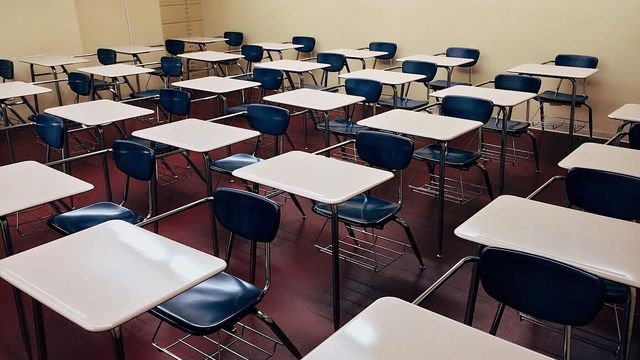How to modernize history lessons? NC Board of Education asks high schoolers
The North Carolina State Board of Education on Wednesday turned to students to guide a discussion on how to better teach history in public schools.
Posted — UpdatedThe hour-long discussion centered around social studies lessons on the history of racism in America and how they can be adapted to better serve classrooms.
One student, KaLa Keaton, said she remembers her middle school social studies classes leaving out topics important to the Black community.
"I noticed the curriculum likes to focus on the Revolutionary War, the Industrial Revolution, the Civil War, both world wars, and the civil rights movement," she said, adding that those topics seem to repeated each year. "I just recently learned about the 1898 Wilmington massacre and the loophole in Thirteenth Amendment, which permitted slavery if people are convicted of crimes."
Keaton said even her textbooks don't accurately depict people of color.
"I understand this may not be intentional, but it is questionable," she said. "Students of color deserve to see the accomplishments, contributions and struggles of our communities accurately depicted in the classes we sit in every year."
Other students described their social studies lessons as "highly predictable" and not providing the full picture.
At-large member JB Buxton called the discussion humbling and said he felt challenged by the students' remarks, and Vice Chairman Alan Duncan and other members asked students how teachers and leaders can make history lessons more interesting.
One student reminded leaders that, when it comes to history, kids like to learn about "the gritty topics" and in an interesting way. The student speakers encouraged teachers to use tools other than readings, such as group discussions, videos and media or guest lecturers to teach them about important moments in history.
The students agreed that middle school would be an appropriate age to introduce more difficult discussions about racism.
Abbey Rogers, a member of the Class of 2020, said she attended a majority-white school and didn't ever feel like her history wasn't represented. Rogers encouraged everyone listening to be open and aware of the need for change.
"When you are raised in an environment that doesn't experiences racism, you don't understand how you are contributing to the problem," she said. "I have learned to kind of take a step back and learn that my privilege makes me come from a place of not ever being able to understand the Black experience and what it means to be Black in America."
The document in part reads that the Board of Education "...recognizes that historical and ongoing systems of inequitable and inadequate resource allocation, punitive disciplinary practices, lack of access to and supports for teachers of color, unequal access to educational opportunities and supports, implicit and explicit biases, and segregation perpetuate inequity in the outcomes of students."
• Credits
Copyright 2024 by Capitol Broadcasting Company. All rights reserved. This material may not be published, broadcast, rewritten or redistributed.






